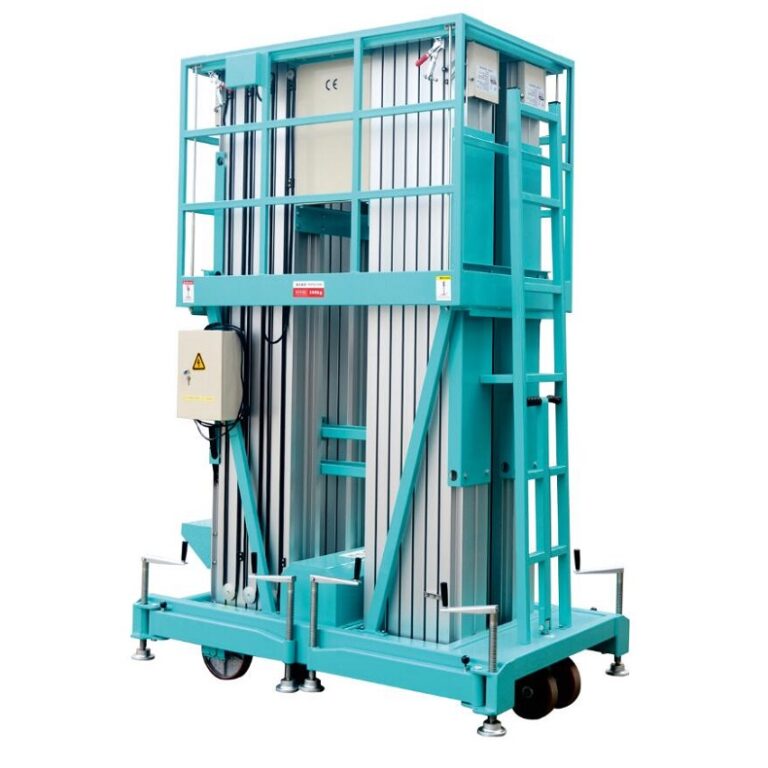The Environmental Impact of Regular Forklift Maintenance
In today’s world, where environmental sustainability is a growing concern, businesses are increasingly looking for ways to reduce their carbon footprint. One often overlooked aspect is the maintenance of industrial equipment, such as forklift trucks. Regular maintenance of forklifts not only ensures their efficient operation but also has significant environmental benefits. This article explores how proper forklift maintenance can contribute to a greener and more sustainable future.
Reducing Emissions
Forklifts, especially those powered by internal combustion engines, can be significant sources of emissions if not properly maintained. Regular maintenance helps in reducing these emissions by ensuring that the engine runs efficiently. Key maintenance tasks that contribute to lower emissions include:
 forklifts aluminum alloy lifting platform | China Trade price on Manufacturer Wholesale aluminum alloy lifting platform Materials Handling sale Buy Online Industrial Equipment USA/UK/India/Australia/CANADA | ForkLift
forklifts aluminum alloy lifting platform | China Trade price on Manufacturer Wholesale aluminum alloy lifting platform Materials Handling sale Buy Online Industrial Equipment USA/UK/India/Australia/CANADA | ForkLift
Engine Tuning: Regular tuning of the engine ensures that it operates at optimal efficiency, reducing the amount of fuel consumed and, consequently, the emissions produced.
Air Filter Replacement: A clean air filter allows the engine to breathe better, improving combustion efficiency and reducing harmful emissions.
Exhaust System Checks: Ensuring that the exhaust system is in good condition helps in reducing the release of pollutants into the atmosphere.
Energy Efficiency
Electric forklifts are becoming increasingly popular due to their lower environmental impact compared to their diesel or gasoline counterparts. However, even electric forklifts require regular maintenance to ensure they operate efficiently. Proper maintenance can lead to significant energy savings, which in turn reduces the environmental impact. Key areas to focus on include:
Battery Maintenance: Regularly checking and maintaining the battery ensures it operates efficiently, reducing energy consumption and extending its lifespan.
Hydraulic System Maintenance: Ensuring that the hydraulic system is in good condition reduces the energy required to lift and move loads.
Tire Maintenance: Properly inflated and maintained tires reduce rolling resistance, leading to lower energy consumption.
Waste Reduction
Regular maintenance of forklifts can also contribute to waste reduction. By keeping the equipment in good condition, businesses can extend the lifespan of their forklifts, reducing the need for frequent replacements and the associated waste. Key maintenance practices that help in waste reduction include:
Lubrication: Regular lubrication of moving parts reduces wear and tear, extending the lifespan of the equipment.
Component Replacement: Timely replacement of worn-out components prevents further damage to the forklift, reducing the need for extensive repairs or replacements.
Preventive Maintenance: Implementing a preventive maintenance schedule helps in identifying and addressing potential issues before they lead to significant damage.
Recycling and Disposal
Proper maintenance also involves the responsible disposal and recycling of used components and fluids. Businesses should ensure that they follow environmentally friendly practices when disposing of used oil, filters, batteries, and other components. Key practices include:
Recycling Used Oil: Used oil should be collected and recycled properly to prevent environmental contamination.
Battery Recycling: Old batteries should be recycled through authorized recycling programs to prevent the release of harmful chemicals into the environment.
Proper Disposal of Filters: Used filters should be disposed of in accordance with environmental regulations to prevent pollution.
Conclusion
Regular maintenance of forklifts is not just about ensuring their efficient operation and reducing downtime; it also has significant environmental benefits. By reducing emissions, improving energy efficiency, minimizing waste, and ensuring responsible disposal and recycling, businesses can contribute to a greener and more sustainable future. As environmental concerns continue to grow, it is essential for businesses to recognize the role that proper equipment maintenance can play in achieving their sustainability goals.